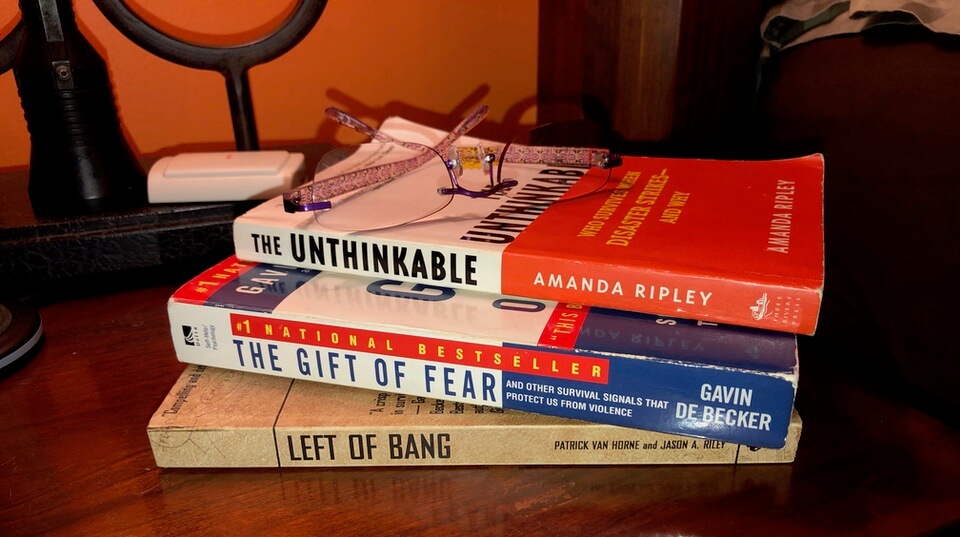Situational Awareness: Tips To Stay Frosty
January 26th, 2020
3 minute read
Recently, I wrote Situational Awareness Survival Skills. For the other part of this series, I’ve included different ways to “stay frosty” — which, in other terms, means watch your back, stay alert, and/or be careful.

Reading List
They say, “The body won’t go where the mind’s never been.” The following list of books offers a great start to anyone interested in opening their minds to the “What ifs?”
- The Unthinkable: Who Survives The Disaster Strikes — and Why by Amanda Ripley. Through investigative journalism, Ripley traces human response to some of history’s most noteworthy disasters. Then, in order to understand the science behind each event she interviews leading brain scientists, trauma psychologists, and disaster experts. Finally she has her brain examined by military researchers while experiencing realistic simulations.
- The Gift of Fear: And Other Survival Signals That Protect Us from Violence by Gavin de Becker. In his thought-provoking book, de Becker explains how to spot subtle signs of danger — before it’s too late. Through real examples, both from an outsider’s perspective or, when possible, a surviving victim, Gavin inspires us to recognize our gut feelings and act on our intuitions.
- Left of Bang by Patrick Van Horne and Jason A. Riley. Getting “left of bang” refers to making better observations and decisions before shots are fired. Through their book, Van Horne and Riley explain how to systematically asses your environment and head off situations before they become problems.

Exude Confidence and Awareness
In the previous column, I offered this tip: “Appear confident and aware of your surroundings.” Since this might seem vague to some, the following list suggests ways to accomplish this task:
- Avoid wearing earbuds when out in public. If you need to, consider lowering the volume or putting only one side in so you can still hear what’s going on around you.
- Make eye contact with people you pass. Maybe even give them a smile.
- Keep your head up and your eyes on your surroundings. Don’t get sucked into the emails or texts on your phone. Pay attention to what’s going on around you.
- Be aware of what’s happening beside you and behind you, too (especially in parking lots).

Make it a Game
This may sound a little crazy, but when I’m out-and-about, I often play the following games:
- Run scenarios in my head: “If a threat came through that door, how would I escape?”
- Practice looking in reflective surfaces to see what I can see.
- While at home, try to recall all the exits of places I often visit, such as a hair or nail salon, grocery store, etc.
Remember, extreme violence can happen anytime, anywhere. It is up to you to develop the mindset to do what is necessary to protect yourself and your loved ones. Keep in mind, the body won’t go where the mind has never been. Do your research and study past scenarios, so when the time comes you might recall a situation you read about and know how to react. Don’t be the person that says, “I never expected that to happen!”
Editor’s Note: This article was shared with us by Women’s Outdoor News.
Editor’s Note: Please be sure to check out the new The Armory Life forum, where you can comment about our daily articles, as well as just talk guns and gear. Click the “Go To Forum Thread” link below to jump in!
Join the Discussion
Continue Reading
Did you enjoy this article?

 145
145






